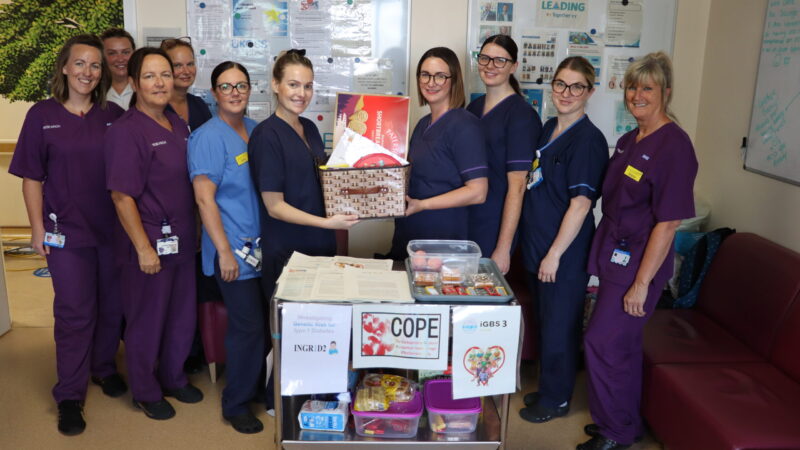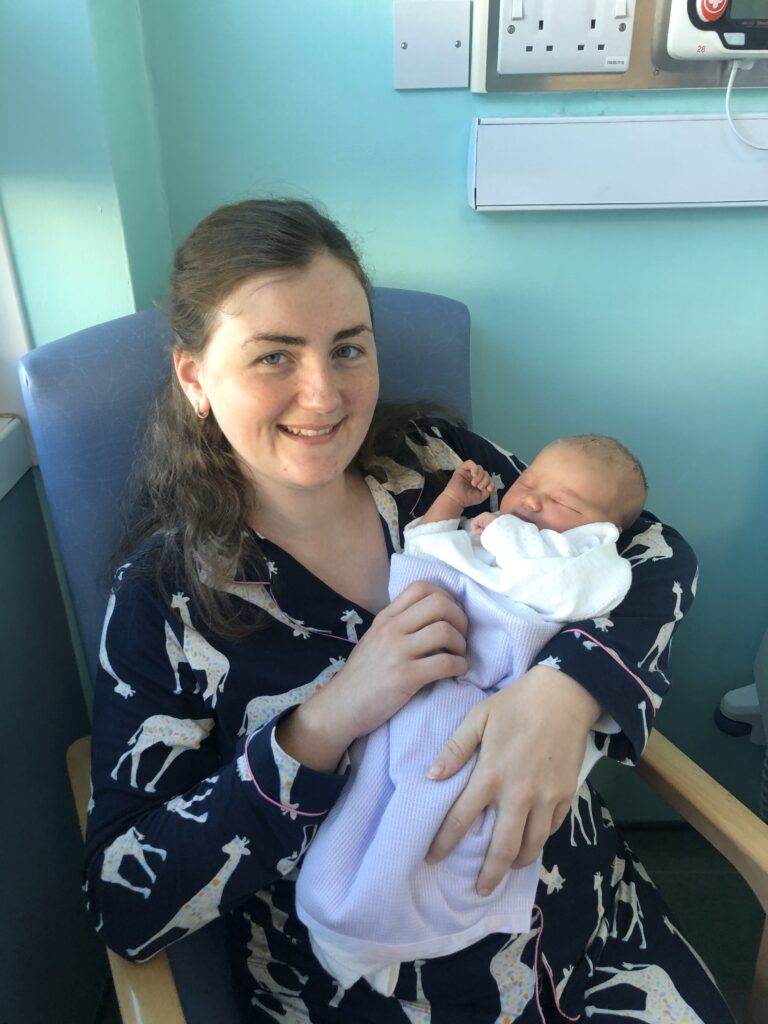
NHS maternity staff have been highlighted for praise after excelling in three national research studies.
The team at North Tees and Hartlepool NHS Foundation Trust have been recruiting mothers and babies in numerous trials which could improve treatment for various health issues.
One of these is INGR1D2 which is looking at the early detection of type one diabetes affecting one in every 250 babies born later in their lives.
The team are the third highest recruiter of any organisation involved in the study – with the total at more than 1,200 babies born at the University Hospital of North Tees being involved.
Another of the studies is iGBS3, investigating a vaccine to prevent Group B Strep (GBS) which is the most common cause of life-threatening infection in newborn babies.
The maternity team have recruited more than 1,700 babies on to this study so far.
The service has also been taking part in the COPE study, looking at bleeding in women after childbirth (postpartum haemorrhage) comparing two common treatments, oxytocin and carboprost.
Rachel Brookbanks, aged 28, who had a baby daughter Amelia earlier this month at North Tees, agreed to be involved in INGR1D2 and iGBS2.

She said: “When the maternity team explained to me the importance of the study, I wanted to be involved.
“This could lead to improved treatment and outcomes for babies which can only be a benefit.
“Why wouldn’t you be involved in research, it only has benefits for future treatment.”
Julie Woollaston, specialist lead midwife, has explained more about the studies.
She said: “We are delighted with how the maternity team have supported all of the studies the Trust is involved in – they are all invested in the benefits of research.
“Because of their dedication and commitment to research, they have explained to all parents the benefits of research and had such a large uptake.
Kirsty Farrington, research midwife, added: “For INGR1D2, I think we have a very high uptake because women understand the benefits to babies in the long term.
“That’s due to the hard work of all of the team in the maternity service.”
Sharon Gowans, research midwife and principal investigator for two of these large studies said: “It is extra work for staff – but they want to do it because they know the difference it could make.
“The research team are on the shop floor in the maternity service – we are all midwives ourselves and we have fantastic relationships with the team here and management are so supportive and open to any suggestions.
“We want to thank the whole team as well as all women who have decided to be involved in these studies.”